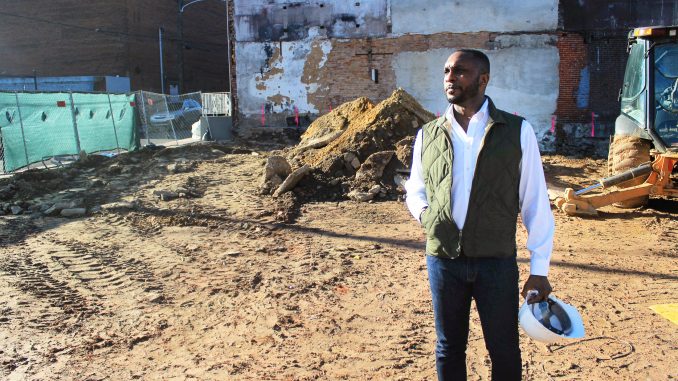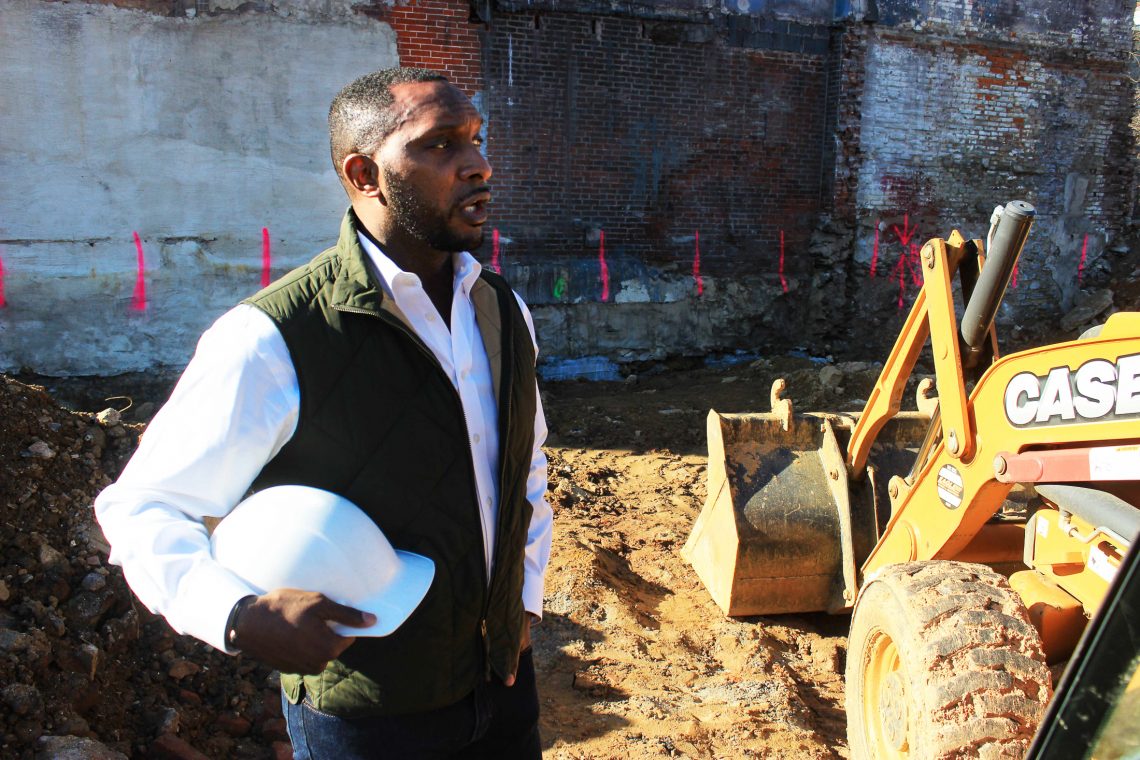
When a developer left a mess of rubble on a property across the street from Kenny Turner’s house on 15th Street near Norris, he decided to complain to Herb Reid, a local developer not affiliated with the property.
Reid listened to Turner and came by to clean the mess up and reinstall a fence that had been knocked down.
“He didn’t have to do that, but he did it because he showed that he cared,“ Turner said.
Reid, a West Philadephia resident and co-founder of the Temple Area Property Association, a local group of property owners, was elected to serve on the board of the North Central Special Services District on March 5.
He was elected unanimously among board members at their March meeting, wrote Tara Miller, the district’s executive director, in an email to The Temple News. He will fill the spot left by Estelle Wilson, a longtime community matriarch who served as the board’s vice president until her death in November 2019.
The North Central Special Services District was formed in April 2019 with five spots reserved for community residents and four for Temple staff. The district was initially met with opposition from residents who viewed it as the university’s way to temper anger over its proposed on-campus stadium, The Temple News reported.
“The Board recognized Mr. Reid as a responsible landlord who has remained in the areas for many years,” Miller wrote. “They hope he can bring a perspective to the board of a business partner in the community and can be a liaison to the other landlords.”
Since its formation, the special services district has expanded Allied Universal security patrols off-campus and employed One Day At A Time, a local substance abuse recovery organization to perform street sweeping four days a week, The Temple News reported.
The district is continuing its beautification work and is planning cleanup efforts the period at the end of the semester when students move out of their apartments, Miller wrote.
Reid’s company Maze Group Development, Inc. manages 35 properties in the Temple area, he said. The change Reid has seen in the neighborhood’s real estate market is like “night and day” as the quality of housing for students has greatly increased while long-time residents are pushed out, he said.

“The neighborhood’s going to get so much better for people that are coming for two and three years,” Reid said. “I think it also needs to also improve for people who have been there 50 years, 30 years.”
Maze is in the process of building a 52-unit affordable housing complex for seniors on Dauphin Street near Carlisle, Reid said. The project is expected to be completed by the end of 2020, Reid said.
Reid will provide a valuable connection to local developers, Turner said.
“We probably will be able to get a lot more done, or, again, perhaps he can get with them and let them take care of some of the financial responsibility because a lot of the cleaning involves areas where the development is,” he said. “And why should the university be the one who has to foot the bill by itself?”
Reid was previously involved in unsuccessful efforts to create a proposed neighborhood improvement district that would address trash and noise issues, in 2012, Reid said.
Reid attributes noise and trash issues in the neighborhood to absentee landlords who do not monitor student tenants’ behavior.
“If you don’t have people on the ground, paying attention, really concerned with what’s happening with the rental properties in the neighborhood, you know, things can go a little haywire,” he said.
But landlords cannot address the neighborhood’s issues on their own, Reid added.
“I think the special services district is really … the piece that’s been missing within the neighborhood, to, really, kind of bring it all together,” he said. “To make sure that, as it’s grown, as a lot of resources have been put into the neighborhood, additional resources need to be met to be able to make that sustainable and really support the growth that is happening in the neighborhood.”


Be the first to comment